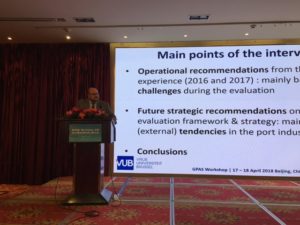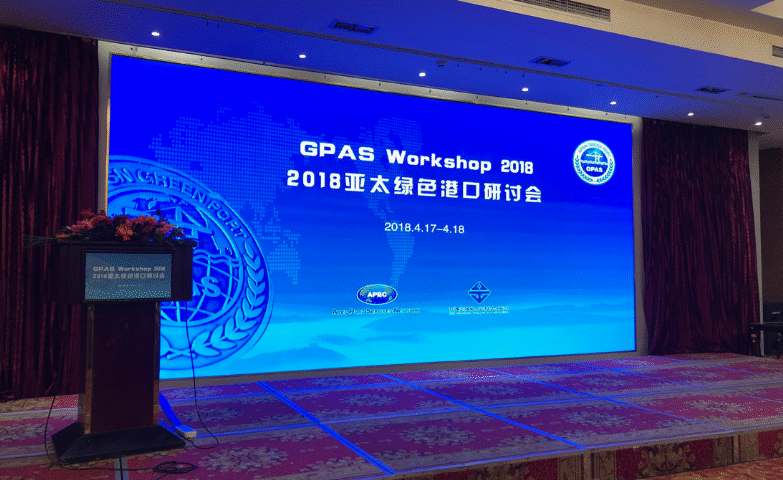 PortEconomics.eu member Michaël Dooms was invited as one of the keynote speakers and panellists at the annual international workshop on Green Port Certification at the APEC Port Services Network (APSN) held in Beijing on 17th and 18th of April 17thand 18th. APSN has been running a Green Port Award System since 2016 aiming at enhancing the green profile of ports in the Asia-Pacific region. Michaël shared his experience as one of the independent evaluators following the 2 years of existence of the GPAS system. About 100 port stakeholders from the region attended the meeting.
PortEconomics.eu member Michaël Dooms was invited as one of the keynote speakers and panellists at the annual international workshop on Green Port Certification at the APEC Port Services Network (APSN) held in Beijing on 17th and 18th of April 17thand 18th. APSN has been running a Green Port Award System since 2016 aiming at enhancing the green profile of ports in the Asia-Pacific region. Michaël shared his experience as one of the independent evaluators following the 2 years of existence of the GPAS system. About 100 port stakeholders from the region attended the meeting.
In his presentation, besides offering concrete recommendations to the GPAS project management team, as well as applicant ports, he offered a more global perspective of the situation when it comes to green certification. At the moment, it appears every major port region (except Africa and the Middle East) has its certification agency, either through trade associations (Europe), private companies (North-America) or transnational cooperation bodies (Asia-Pacific). Examples are the ECOPORTS project run by ESPO, and the GreenMarine initiative in North America, next to APEC’s own GPAS. Given the global nature of the port and shipping industry, a path towards cross-regional learning as well convergence between the various systems, might be advisable to enhance credibility towards external stakeholders of the industry. The different presentations, as well as the panel debate, showed that learning should be beneficial to all parties, and that most systems offer interesting complementarities to exploit.
Michaël also stressed the importance of moving from ‘green’ to ‘sustainable’ as a broader concept, highlighting that ‘green’ has become too narrow in scope in terms of tackling the complex sustainability challenges ahead. Further, more efforts on the level of port performance management and monitoring is required in the context of sustainability, including the development of jointly managed tools and exchange of insights, referring to the PORTOPIA project outcomes.
You can download Michaël’s presentation here.












